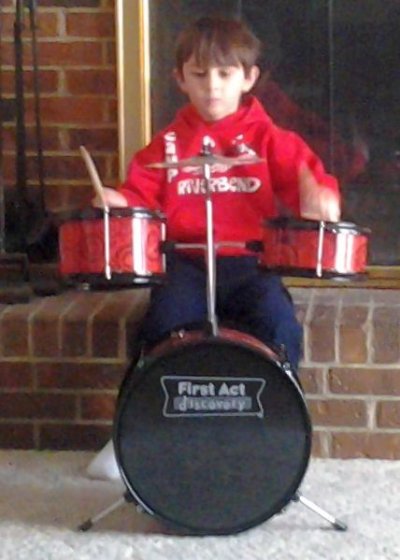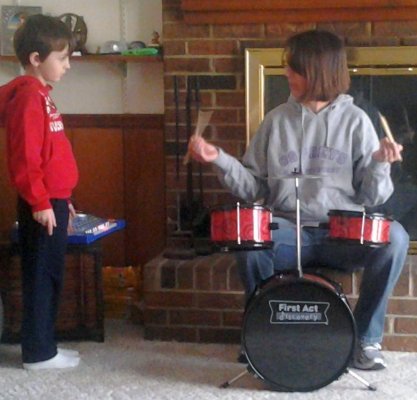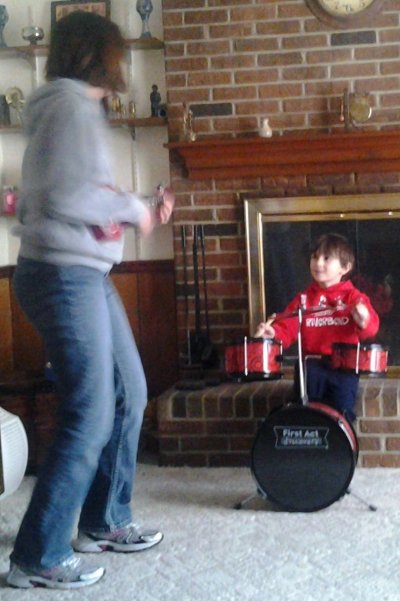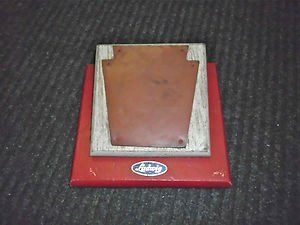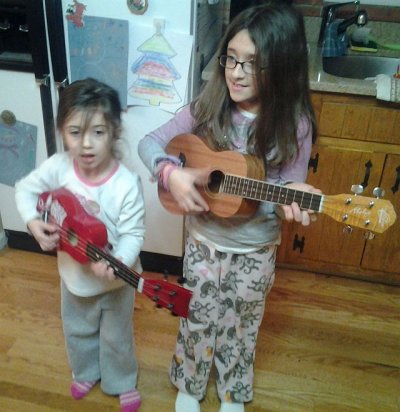Tom
Administrator
- Joined
- Jan 13, 2005
- Posts
- 51,898
I'm currently at our son's home near Columbus, OH freezing my tootsies off, while Chris is driving 2700 miles with our daughter and grandkids to their new home in the same town.
I need to practice the uke while here, so I bought an el cheapo uke on amazon.com and had it shipped here. When I pulled it out of the carton, our DIL pulled out an inexpensive uke owned by our 5 year old grandson. He doesn't (yet) play, and his uke wasn't in tune anyway. I expect to have him strumming before we leave to return to CA.
Meanwhile, in discussion with our DIL, I learn that she comes from a musical family; She played banjo and drums, her father plays guitar, her brothers play guitar &/or drums, and one bro teaches banjo. Wow! None of this came out in our prior visits here or their visits to CA.
Today our DIL was lamenting the fact that she'd given her banjo away to someone, and expressed a desire to get back to playing. Google turned up several local musical instrument stores, but we came away disappointed.
On the way 'home', we stopped at a Thrift store and found a used kid's 'drum kit' (apologies to serious drummers), and I learned our grandson, who has and sorta plays several 'instruments', has been wanting one. We get back to the house and he announced "I'm going to practice for a concert and you're all invited". The 'concert' involved our GS playing the drums to a background song. All I can say is WOW! He was on the beat, introduced some variations, and ended on the beat. He then announced we were invited to a second 'concert' this evening. Meanwhile, his Mommy gave him a little instruction from her drumming days, and proceeded to accompany him on the uke.
I need to practice the uke while here, so I bought an el cheapo uke on amazon.com and had it shipped here. When I pulled it out of the carton, our DIL pulled out an inexpensive uke owned by our 5 year old grandson. He doesn't (yet) play, and his uke wasn't in tune anyway. I expect to have him strumming before we leave to return to CA.
Meanwhile, in discussion with our DIL, I learn that she comes from a musical family; She played banjo and drums, her father plays guitar, her brothers play guitar &/or drums, and one bro teaches banjo. Wow! None of this came out in our prior visits here or their visits to CA.
Today our DIL was lamenting the fact that she'd given her banjo away to someone, and expressed a desire to get back to playing. Google turned up several local musical instrument stores, but we came away disappointed.
On the way 'home', we stopped at a Thrift store and found a used kid's 'drum kit' (apologies to serious drummers), and I learned our grandson, who has and sorta plays several 'instruments', has been wanting one. We get back to the house and he announced "I'm going to practice for a concert and you're all invited". The 'concert' involved our GS playing the drums to a background song. All I can say is WOW! He was on the beat, introduced some variations, and ended on the beat. He then announced we were invited to a second 'concert' this evening. Meanwhile, his Mommy gave him a little instruction from her drumming days, and proceeded to accompany him on the uke.

